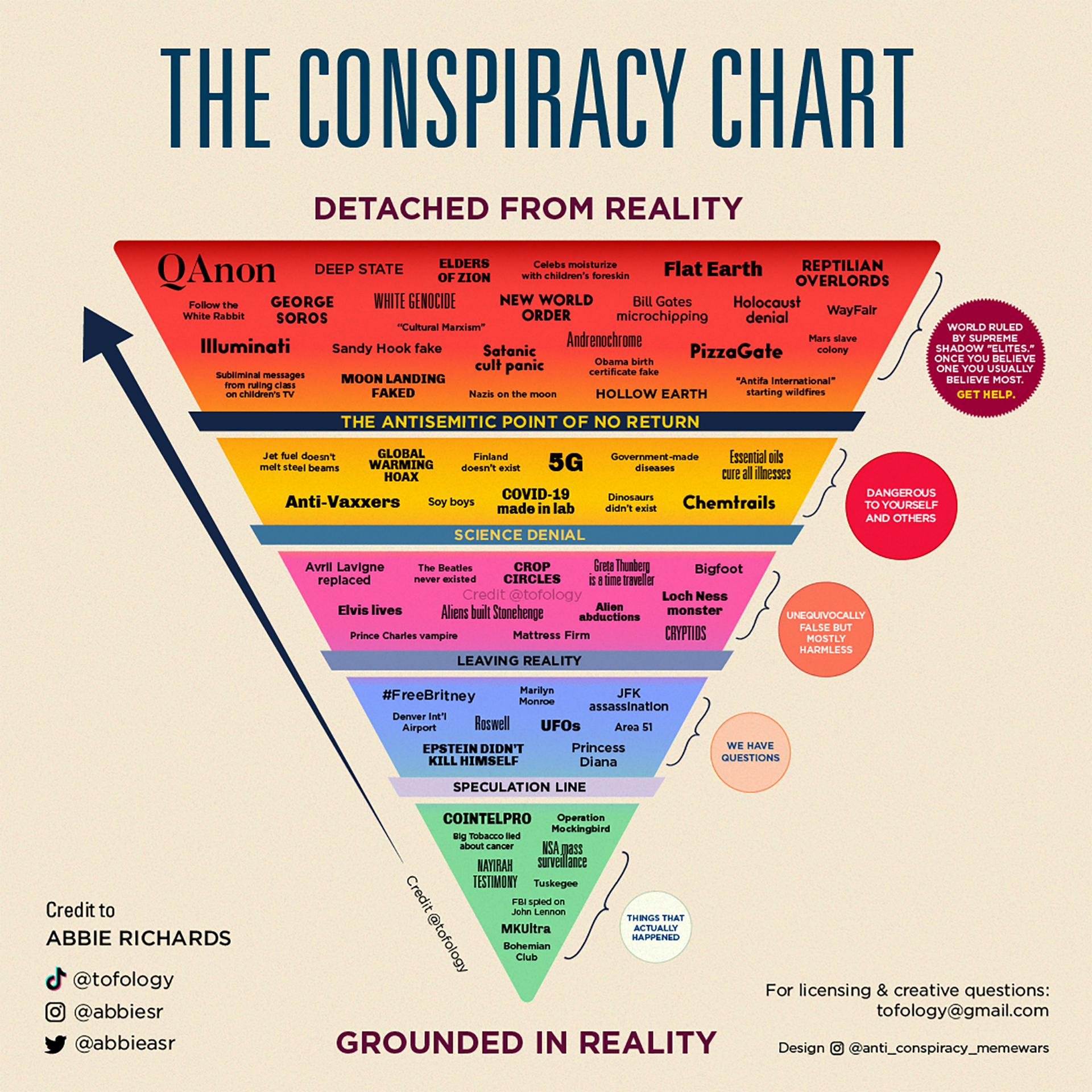conspiracy theory
30 Oct 2021 02:15 - 16 Dec 2022 12:22
- Conspiracy theories are usually bad theories of group agency; they postulate some shadowy group that is pulling the strings of the world. They flourish in part because we lack good theories of agency.
- I first got wind of this subject via The Illuminatus! Trilogy by Wilson and Shea, a psychedelic spoof on the various forms of conspiracy theory in the air in the 70s. Both the book and its subjects seemed very out-there and fringey back then, but given their role in the rise of Trump and his attempted violent coup, conspiracy theories are clearly central to what is going on in the world today.
- The QAnon conspiracy theory has really broken away from the pack; it has adherents in Congress and an HBO documentary, and is wildly successful (in a memetic sense) despite its manifest ridiculousness.
- QAnon and the Emergence of the Unreal, Ethan Zuckerman
QAnon may be the first conspiracy to have fully embraced the participatory nature of the contemporary internet. The core texts of the QAnon movement are a set of more than 3,000 brief messages posted on Internet message boards 4chan and 8chan. These message boards are anonymous, chaotic and ephemeral, all characteristics that would seem to mitigate against the broad transmission of these missives... of course, the process of deciphering and interpreting these vague clues is a hell of a lot more interesting than reading the rantings of a paranoid mind.
- There are two somewhat separable aspects to conspiracy theories: their content (that is, whether they are an accurate model of some real phenomenon); and their occultish epistemological status. They have the aura of secret knowledge; people believe in conspiracy theories because it makes them feel powerful, as if they see into things the way normal people can't. A theory like "the powerful meet at Davos every year to collude on running the world" isn't quite a conspiracy theory because everybody knows it, there is no secret involved.
- Conspiracy theories tend to have elements of anti-semitism in them. The Protocols of the Elders of Zion is kind of a prototype here. It's significant that this work was a forgery created by the Russian state to deflect attention from its own agency and place it within a shadowy cabal.
Earlier
- [Weird Tales from the Seventies] (https://omniorthogonal.blogspot.com/2019/12/weird-tales-from-seventies.html) by Erik Davis
- Q-Anon and "conspirituality"
The viking bodypaint guy was the most visually striking part of the recent coup attempt. He goes by "Jake Angeli" and here he explains his theories of shamanism, fractals, DNA antennas, and the New World Order keeping us in a Saturnian prison https://t.co/wlkvA4lghS
— mtraven (@mtraven) January 9, 2021QAnon shaman charging document. I have to admit I have a hard time seeing him as having real agency -- he seems like a lost new age doofus who was brain-wormed by a toxic cult https://t.co/A3l39hIArZ (of course you could say the same for the Manson family)
— mtraven (@mtraven) January 15, 2021- Further reading
- Hofstadter, The Paranoid Style
- Lagalisse, Occult Features of Anarchism
- Illuminatus! of course, and RAW's Cosmic Trigger and High Weirdness to see how this stuff can act like a drug.

